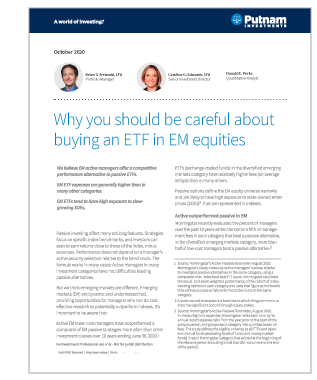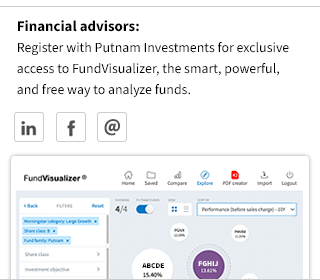Passive investing offers many enticing features. Strategies focus on specific index benchmarks, and investors can seek to earn returns close to those of the index, minus expenses.
Performance does not depend on a manager’s active security selection relative to the benchmark. The formula works in many cases: Active managers in many investment categories have had difficulties beating passive alternatives.
But we think emerging markets are different. Emerging markets (EM) are dynamic and under-researched, providing opportunities for managers who can do cost-effective research to potentially outperform indexes. It’s important to be aware that:
- Active EM lower cost managers have outperformed a composite of EM passive strategies more often than other investment classes over 10 years ending June 30, 2020.*
- ETFs (exchange-traded funds) in the diversified emerging markets category have relatively higher fees (on average 50 bps) than in many others.
- Passive options define the EM equity universe narrowly and are likely to have high exposure to state-owned enterprises (SOEs) that are represented in indexes.
Advisors: Continue reading our research on why you should be careful about buying an ETF in emerging-market equities
* Morningstar’s Active/Passive Barometer, August 2020.
323702 10/20
More in: Equity, International




